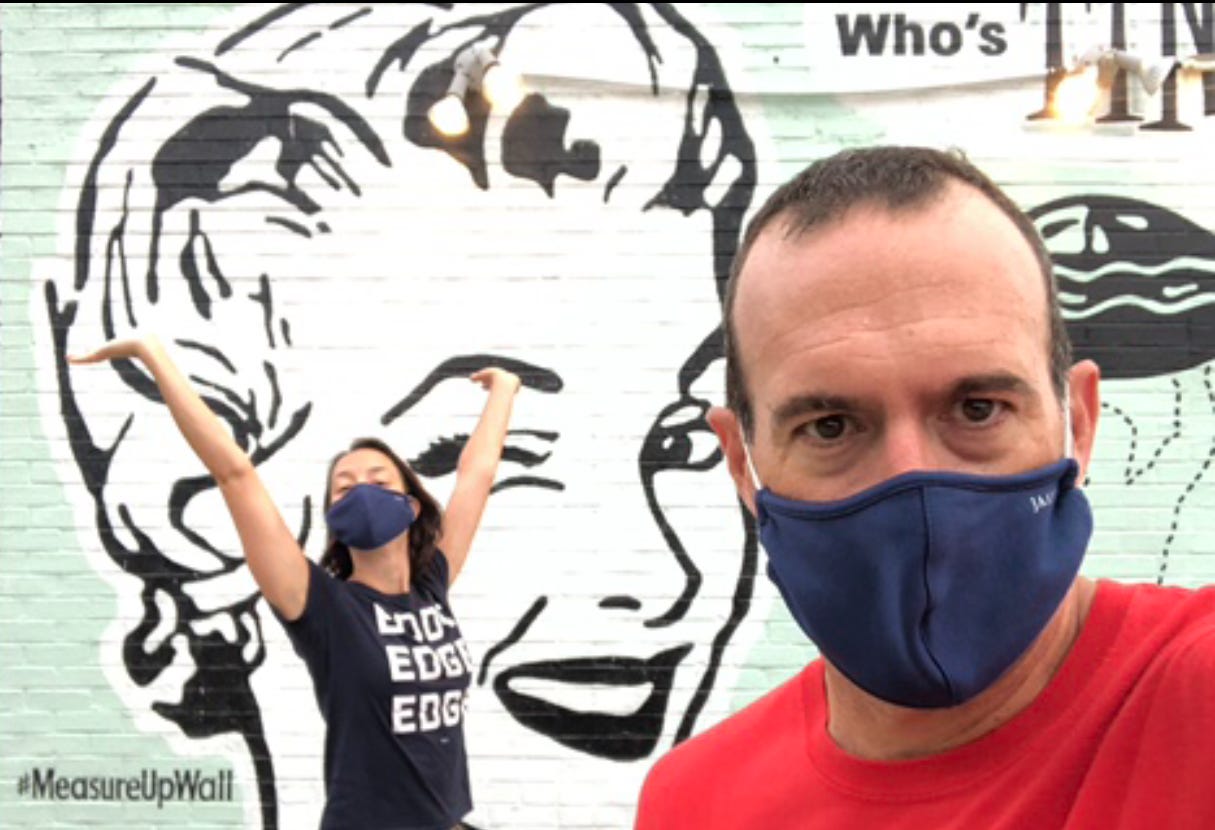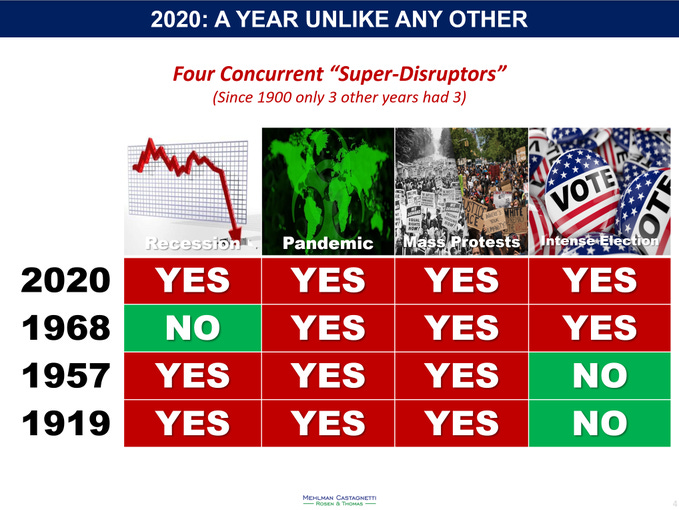This week Robin Whetstone offers another chapter from her Moscow memoir, Red Ticket, in which I give her a couple writing assignments, but she dreams of covering war. And my friend Maggie Moore offers “Infinite Loops.” And as always, we remember who we’ve lost and offer recommendations on what to do, read, watch, and listen to.
But first, did I ever tell you what’s been bugging me?
I mean, I get it. The State of the Union is suboptimal. If our country were a used car, it’d be a 1971 Ford Pinto. Our economy just had its worst quarter since 1875. The number of unemployed Americans is roughly equal to the population of Texas. As many Americans have died in the pandemic as were killed in action in the Revolutionary War, the Northwest Indian War, the War of 1812, the First and Second Seminole Wars, the Mexican-American War, the Indian Wars, the Spanish-American War, Philippine–American War, World War I, the Korean War, the Vietnam War, the Gulf War, and the War in Afghanistan. We have had protests of police brutality in every major city, and in pretty much every city those protests have been met with police brutality. Almost half (45%) of Americans say they are experiencing negative mental health consequences due to … /gestures vaguely at the window/ … which means the other half of the country is probably lying. This is, as lobbyist and influential trend-spotter Bruce Mehlman called it, “a year unlike any other,” and he did not mean it in a good way.
So I’m not confused that most people would rather treat 2020 like Google is treating plans to go back to the office — see you in 2021, people. We took the calendar off the wall months ago. The First Rule of the Trump Presidency is not that things can always get worse but that they inevitably will, and 2020 is proof.
What was bugging me was why it took the worst year in recorded American history (Ryan Holiday reminds us that people have survived worse, but this is America, baby.) What I’ve been struggling with is wondering why it took 2020 for Trump’s base to crack. (He’s bleeding non-college-educated white voters and white Catholics.) Trump started by calling Mexicans rapists and only got stronger. He promised to throw Hillary in prison and to make Mexico pay for a wall. The wall is not complete, and we’re paying for it, and unless the woods outside of Chappaqua are a minimum-security prison, Hillary walks this earth a free woman. The number of women have accused Trump of sexual assault is double the average number of relationships an American will have in a lifetime, which is to say that this President comes off a bit rapey. Add to that the Second Law of the Trump Presidency: The best way to predict his foreign policy is to ask what a Russian asset would do. Oh yeah — he threw kids in cages. In the leaked audio, we heard them crying for their mothers, but the cruelty was the point.
“I alone can fix it,” he told them, and his base became a granite plinth. The Republican Party became a cult of personality. Loyalty to the President took primacy over loyalty to traditionally Republican policies. Questions of right and wrong — what ham-handed rhetoricians call “values” — became not just quaint but heresy. Trump became Goliath to the evangelical Philistines. He would commit impeachable offenses with his thumbs in the middle of the night, and the next day senators would claim not to have read his tweets or to have thought his humorless rantings a joke intended only to cause upset, not laughter. The House impeached him, and the Senate, wary of his wrath, didn’t even bother with a show trial. The news media documented 20,000 lies, so his voters decided that the news media was exactly what he said: an enemy of the people.
For a while, he seemed able to bend reality to his will, at least inside his bubble. We had our reality with science, journalism, democratic norms, and most of the culture, and he had his reality, with cranks, guns, Fox News, stacked courts, and Ted Nugent, Scott Baio, Antonio Sabato Jr, and Diamond and Silk.
Then his bubble burst. At first, he tried to tell us that everything was fine, this was a Democratic hoax. In February, he said the pandemic would go away by April. “Like a miracle, it will disappear.” In April: “I said it’s going away, and it is going away.”
It did not, and has not. The coronavirus has proven impervious to Trump’s attempts to bend reality to his will. His first attempt at a rally fizzled because too many of his voters fairly judged the danger of being cooped up indoors with a bunch of yelling, maskless people. He moved the Republican convention from city to city like an unwanted garbage scow, promising an immersive alternate reality experience where you wouldn’t have to wear a mask or stand six feet apart from each other and all would be well. You could yell “Lock her up!” to your heart’s content and party like it’s 2016.
The presidential polls started tracking closely with how voters viewed how Trump was handling the pandemic, all the while manifesting precisely the threat he said Joe Biden posed to America - burning cities, a government unable to protect its people while a daft king banged into end tables. The virus didn’t care what he tweeted. It just wanted to kill people.
Did it really take the end of the world as we know it for his base to accept reality? Perhaps it was that unlike an impeachment hearing or refugee children locked away along the border. This pandemic had caused the greatest and most sudden change in human behavior in world history. Every city was a biological Superfund site with its very own Selma and Watts rolled up into one. Perhaps the universality of the experience explained the sudden change in political attitudes.
That explanation for the restructuring of our political reality had logic going for it, but his voters had proven impervious to reason before. If liberals said it, they reasoned, it must be wrong. (And in fact there are still Republican members of congress who say that the pandemic is a Democratic hoax.)
I was muttering about this question with my wife, Sonia Van Meter, over bagels the other morning, and she instantly came up with the answer: Trump has stepped out of character. He got elected saying “I alone can fix it” and now is blaming China for the coronavirus, which he recently called “this horrible, invisible enemy … this horrible event, this horrible plague — it’s what it is, is a plague.” He wants credit for all the progress he says he’s making but admits that this is bigger, more powerful than even he.
Her insight reminded me of — I am honestly ashamed to admit this is what immediately came to mind — Iron Man 2. (Oh God, this is so embarrassing.) The first movie in that series established Tony Stark’s creation as the world’s most powerful weapon, a one-man war machine with no equal. He was also a bit of a twat, and as Iron Man 2 opens we see the insufferable playboy racing cars in Monaco when Ivan Vanko, or Whiplash in Marvel canon (oh man, this is getting worse) crashes Stark’s race car with a mechanical whip. Stark puts on his Iron Man suit but is bested by Vanko’s sparky whip. All the king’s horses and all the king’s gendarmes toss Vanko in the pokey, but not before the world sees Iron Man get his butt kicked on live television.
Stark then visits Vanko in jail for no apparent reason other than to salve his wounded pride. Stark tried to call scoreboard, but Vanko said winning wasn’t the point, and in fact it wasn’t even winning. All Vanko had to do to win was to show that Iron Man was vulnerable.
If you could make God bleed, people would cease to believe in Him. There will be blood in the water, the sharks will come. All I have to do is sit back and watch as the world consumes you.
This is where comparing Tony Stark to Donald J. Trump, likewise a peacocky fictitious billionaire with toxic personality traits, ends, because Iron Man eventually bested Whiplash with the help of a Black man.
Trump, though, like Stark, is dealing with a super machine that no longer exerts power. He holds the phone in his hands and wonders at his sudden inability to control reality. He has rebooted his White House briefings, reasoning that the more he commands the stage, the more the people will applaud. But he’s admitting that he’s lost his mojo. These are sad affairs and hard to watch. He pretends to mourn the 150,000 who have died while blaming China. He brags about his administration’s response and wonders why he gets no credit when his doctors are so popular. They work for him, don’t they?
“So it sort of is curious,” he said this week. “A man works for us — with us, very closely, Dr. Fauci, and Dr. Birx also highly thought of. And yet, they’re highly thought of, but nobody likes me. It can only be my personality. That’s all.”
Red Ticket: Moscow Hill
by Robin Whetstone
Every weekend we serialize Red Ticket, Robin Whetstone’s memoir of her time in Moscow in the early ‘90s. This week, I give Robin a couple writing assignments, but she dreams of war.
“What is that?” I asked.
“It’s a Geiger counter,” said Brad.
“Why’s it clicking like that?”
“It works,” said Brad.
Infinite Loops
by Maggie Moore
My friend Maggie Moore, who last February wrote about how the movie 1917 got the intimacy of war right, returns to tell is how much Palm Springs, the new Hulu movie, resonated with her.
So, this is today. Today is yesterday. And tomorrow is also today.
RIP
How we’re getting through this
Relaxing in labyrinths
Making gochujang spaghetti
Not messing with New York dogs
Officially capitalizing the B in Black
Pre-ordering Maggie Smith’s new book
Wondering why they thought this was a good idea
Worrying about people who can’t live without sheetcake
Lying down in a room filled with thousands of caged bees
What I’m reading
Keri Blakinger: “Will The Reckoning Over Racist Names Include These Prisons?”
Nate Cohn: “Big Polling Leads Tend to Erode. Is Biden’s Edge Different?”
The last time a candidate sustained such a large advantage for so long was nearly 25 years ago, when Bill Clinton led Bob Dole in 1996.
San Antonio Current: “San Antonio Congressman Chip Roy Says the COVID Pandemic Is a Hoax Meant to Hurt the GOP”
Data For Progress: “Memo: Democrats Hold Upper Hand on Coronavirus Negotiations”
Robin Givhan: “Tech titans gave their House testimony virtually. But it was the congressmen who departed from reality.”
And then Jordan had a fit because conservatives have feelings, too. So he started yelling again. And he was told to put on his mask. And, well, oh, boy, it was as childish as it all sounds, and one couldn’t help but wonder whether some of our representatives are drinking the hand sanitizer instead of using it for good hygiene.
Monica Hesse: “All the President’s ‘Suburban Housewives’”
Ann Hornaday: “The film industry is in crisis. It can learn a lot from the 1970s.”
But the referential feedback loop has also resulted in an unfortunate trope, in which dark equals deep, brutality equals maturity, and cynicism equals moral seriousness. The visual and tonal cues generations of ’70s imitators have used to signal importance and sophistication weren’t self-conscious flourishes at the time as much as reflections of the filmmakers’ reality.
Sally Jenkins: “Why are sports in trouble in the U.S.? Because we didn’t do the work.”
Paul Kane: “As pandemic limits scrutiny, GOP fears lesser-known Democratic candidates will steamroll to Senate majority”
William Kole: “A troubling pandemic thought: Are THESE the good old days?”
Los Angeles Times: “Alanis Morissette and Liz Phair talk songwriting during an apocalypse and rock-star self-care”
Emily Esfahani Smith: “On Coronavirus Lockdown? Look for Meaning, Not Happiness”
Dan Zak: “American exceptionalism was our preexisting condition”
She views the years since 1968 as a cycle of recessions and widening inequality, debt and disenfranchisement that is only now becoming apparent to broader America — white America, moneyed America — because the pandemic and social media have made it impossible to ignore. Institutions have been deteriorating and failing us for generations, she says, but we rigged workarounds with our own social networks and mutual-aid groups. We made do. Then the pandemic scattered us, isolated us, exposed us for what we really are.
What I’m watching
Barack Obama’s eulogy for John Lewis was a piquant reminder of how good we can be, as was this Nike ad.
But if you need some entertainment about finding purpose in an immoral time, do yourself a favor and spend some time with HBO’s Perry Mason, a prequel to the Boomer television classic.
What I’m listening to
My wife, a complete badass, merited an entire episode of the new podcast, The Oppo File. Lobbyists are getting into the podcasting game. Bruce Mehlman, the author of the famous quarterly deck, recently interviewed Karl Rove about the future of the Republican Party.
Cousin Greg from Succession crowdsourced a great — no, really — power-pop COVID song called “Do You Have the Antibodies?” to raise money.
I’ve been listening to this song on a loop since someone turned me onto Houston’s Tobe Nwigwe. It’s my fight song, if things don’t turn out alright song, my not getting along song.
What do you think of today's email? I'd love to hear your thoughts, questions and feedback. I might even put ‘em in the newsletter if I don’t steal it outright.
Enjoying this newsletter? Forward to a friend! They can sign up here. Unless of course you were forwarded this email, in which case you should…
Want a way to send gifts and support local restaurants? Goldbelly’s got you hooked up.
I used this to order scotch delivered right to my door. Recommend.
Thanks to Noom I am down to my college weight, and haven’t had to cut out any foods. Noom is an app that uses psychology, calorie counting, and measuring activity to change your behavior and the way you think about food. I’m stronger and healthier than I’ve been in years. Click on the blue box to get 20% off.
Want a way to send gifts and support local restaurants? Goldbelly’s got you hooked up.
Currnt is a cool new platform where you can get paid to share your expertise on online panels. It’s LinkedIn for introverts.
I now offer personal career coaching sessions through Need Hop.
If this newsletter is of some value to you, consider donating. Honestly, I’m not doing this for the money. I’m writing this newsletter for myself, and for you. And a lot of you are contributing with letters and by suggesting articles for me to post. But some of you have asked for a way to donate money, so I’m posting my Venmo and PayPal information here. I promise to waste every cent you give me on having fun, because writing this newsletter for you is some of the most fun I’ve had. Venmo me at @Jason-Stanford-1, or use this PayPal link.







